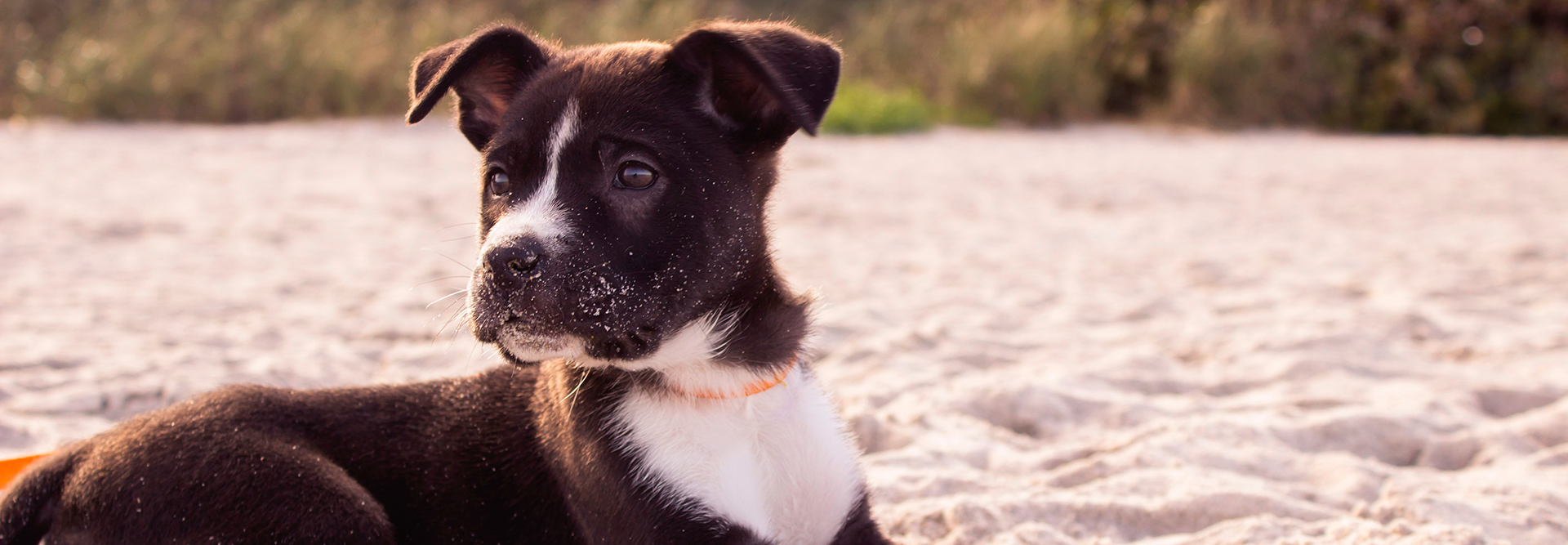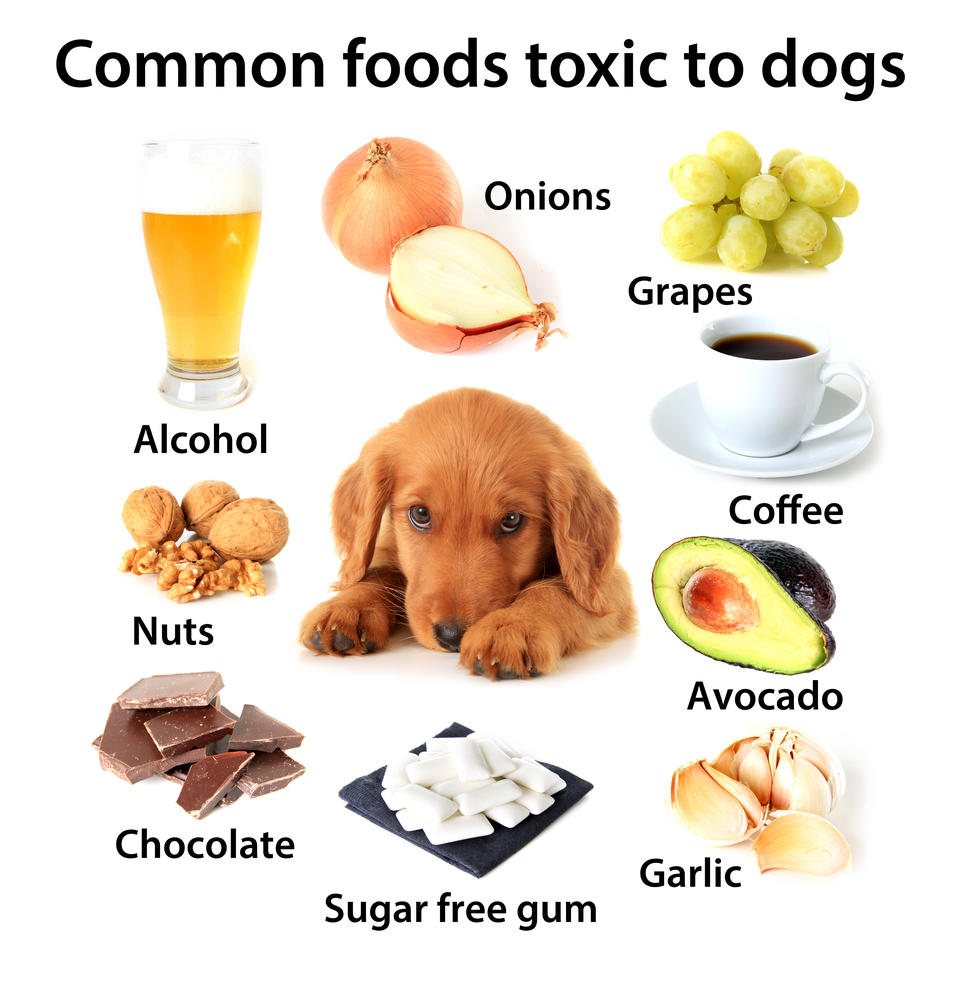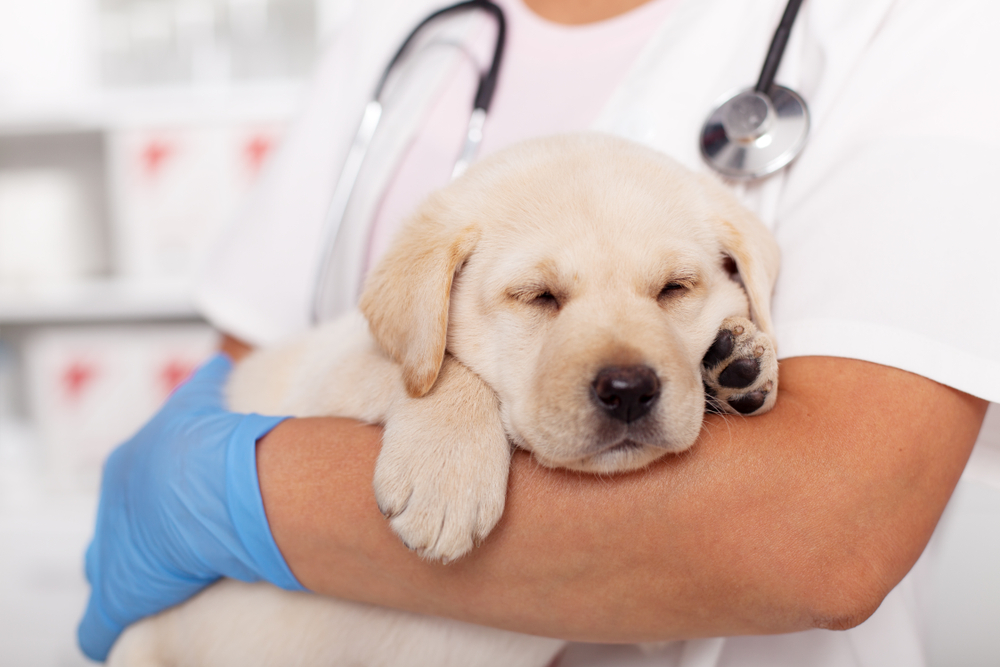Phone: +1 (903) 561-3142

Whether you have a dog, a puppy, or you’re thinking about getting a new furry friend of the canine variety, it’s important to know what human foods are dangerous to dogs. The fact of the matter is that people sometimes feed their dogs table scraps. We all know it’s not a good idea, but it […]
Whether you have a dog, a puppy, or you’re thinking about getting a new furry friend of the canine variety, it’s important to know what human foods are dangerous to dogs.
The fact of the matter is that people sometimes feed their dogs table scraps. We all know it’s not a good idea, but it happens. That’s life, which is why Petland Texas isn’t going to lecture about why feeding a dog human food is a bad habit to get into. Instead, we’re going to educate you on the human foods to avoid feeding your dog so that he doesn’t get sick or worse.
Here are 10 foods that your puppy dog should not eat. Some of these could be fatal if your dog ingests them, while others will lead to digestive upset such as diarrhea or vomiting.
Thinking about giving your puppy a bite of your leftover cheeseburger? Think again. A hidden danger inside your Big Mac, salad, or other prepared meals come from the onion family. We’re talking about Amaryllidaceae, namely onions, leeks, garlic, chives, shallots, and other “bulbous, flowering roots.” The onion family, whether dry, raw or cooked, is particularly toxic to dogs and can cause gastrointestinal irritation and red blood cell damage. Signs of illness are not always immediate and can occur up to a few days later.

By now, it’s become common knowledge that chocolate is “bad” for dogs, but it’s important to know why, and what properties within chocolate cause this sweet treat to be fatal in dogs. The chemical property in chocolate that’s poisonous to dogs is called theobromine. There is no chocolate that is “safe” for dogs, not even white chocolate. All chocolate has theobromine. The most dangerous types are dark chocolate and unsweetened baking chocolate. So if you’re thinking about baking some chocolate cookies, be sure to keep a close eye on your puppy! The theobromine in chocolate is a stimulant that can cause heart problems, tremors, seizures, and death in dogs. The warning signs are vomiting and diarrhea.
Dogs love peanut butter. It’s a well known fact that peanut butter is so beloved by puppies and dogs that they’ll do just about anything for a taste. But does that mean that dogs can eat all nuts? The short answer is, no. Though dogs can eat most nuts, there is one that can be fatal if a dog eats it. We’re talking about macadamia nuts. Macadamia nuts contain a toxin that can affect your dog’s muscles and nervous system resulting in weakness, swollen limbs, and panting. Symptoms of macadamia nut exposure in dogs include muscle shakes, vomiting, high temperature, and weakness in their back legs. Do not let your dog eat macadamia nuts, and be sure to keep foods that have macadamia nuts away from your dog.
Even though “corn” itself is not harmful to dogs, we wanted to include “corn on the cob” on this list. Corn on the cob can be hazardous to puppies and dogs mainly because of the shape of this food. The “cob” can be irresistible to dogs, especially puppies who are in their gnawing, chewing, and teething phase. The cob can remind dogs of a bone, but it’s not as sturdy, so when they gnaw on it, it crumbles. These pieces can be fatal if eaten by your dog, because the cob can cause a blockage in your dog’s intestine.
These days, more and more candies, gums, and treats are made with artificial sweeteners, such as Xylitol, in the world’s effort to consume less real sugar and improve overall health. While these artificial sweeteners certainly help people reduce the real sugar they consume, their presence in your home if you have a dog poses a potential hazard. Xylitol can be found in many household foods and products, including toothpaste. If your dog digests one of these sweetened foods or products, they can go into hypoglycaemia which is linked to liver failure and blood clotting disorders. Be extra careful with your puppy if you have gums, foods, and household items with Xylitol.
Alcohol has a huge impact on dogs even in small doses. The drink not only causes intoxication as it does in humans, but it can lead to sickness, diarrhea, and even central nervous system damage. You’re probably thinking that it’s obvious that you shouldn’t give your dog a beer. But it might not be so obvious that your household cleaners contain alcohol, even “pet friendly” and all natural ones. Dogs cannot metabolize alcohol, so beverages, foods, or household products containing different forms of alcohol are unhealthy and can be toxic. Alcohol can also cause lethargy, respiratory depression, and dangerously low body temperature in dogs.
Giving your dog a raw uncooked bone to chew on is great, but avoid cooked bones at all cost. These can easily splinter, and in large quantities can cause constipation or worse, a perforation of the gut which can be fatal. This means that you can’t let your puppy nibble on the leftover chicken bones from your fried chicken or the leftover bones from the rack of lamb you just finished eating.

For ages, it has been a mystery why grapes and raisins are toxic to dogs. But recently, this mystery has been solved. The culprit within grapes and raisins that causes such severe damage to dogs and puppies is a chemical property called “tartaric acid.” Raisins are in many of the foods that we love to eat such as cakes, biscuits, and cereals so it’s not just the raw fruit you should be mindful of. If you’re snacking on a treat that has raisins, you’ll have to make for absolute sure that your puppy doesn’t steal a bite. Both grapes and raisins may cause severe liver damage and kidney failure. Warning signs are vomiting, diarrhea, and excessive thirst, which could be quickly followed by kidney damage and failure if you don’t get your dog to a vet ASAP.
This one should also be a no-brainer along with alcohol, but even though we don’t believe anyone would feed their puppy coffee or caffeine on purpose, we would like to make sure no one accidentally allows their dog to ingest this poison. If you keep coffee beans or coffee grounds at home, then you’ll need to be extra careful that your puppy doesn’t seek it out to taste it. This is especially true if you dispose of coffee grounds in your kitchen trash bin. Make sure those trash lids lock shut. Also, caffeine is in some cold medicines and pain killers, so keep those stowed safely in the medicine cabinet. If you suspect that your dog has ingested caffeine, take him to the vet immediately.
Did you know that most canines are lactose intolerant? It’s true. This can be a confusing topic for people since puppies obviously drink their mothers’ milk during nursing, and adult dogs seem to be fine when they have a lick of ice cream. But neither of these instances should be used to assume that milk and other dairy is fine for dogs to eat. Milk and milk-based products can cause diarrhea and other digestive problems for your dog. Milk and dairy can also trigger food allergies, which can cause them to itch. So, it’s best to keep your furry friend away from these types of food products.
That concludes our list of the 10 human foods that are poisonous to your dog. Remember, if you just brought home a new puppy, always consult your veterinarian before introducing any new food items to your puppy’s diet. And if you suspect that your puppy ingested any of the poisonous foods on this list, do not hesitate to bring him to the vet right away. It could save his life.